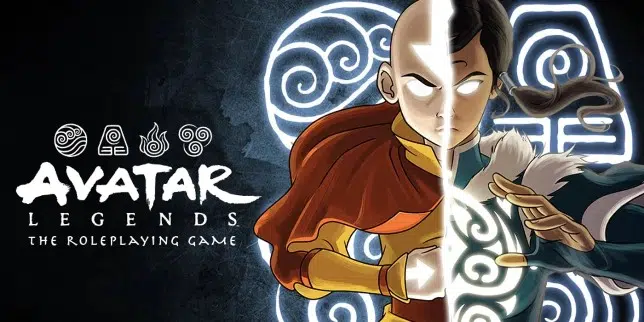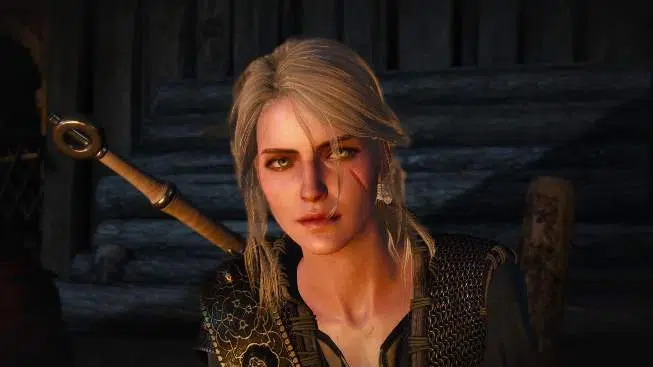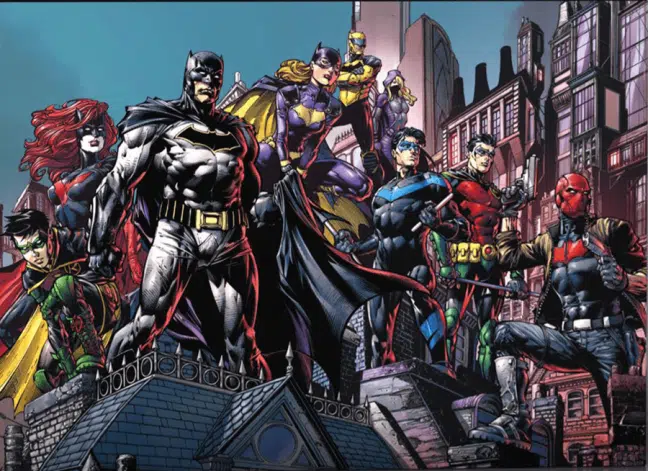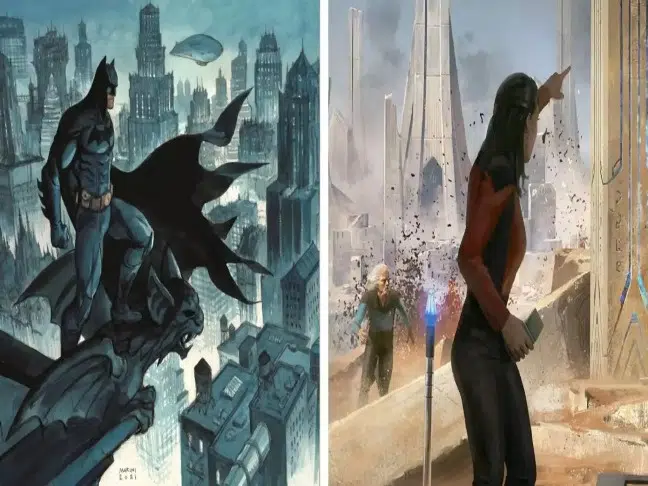A look at how the ruleset and narrative frameworks of classic Tabletop RPG adaptations of brands like Batman and Dune honor and pervert their inspirations.
Soon after, the original Dungeons & Dragons established that tabletop roleplaying games could be profitable. Media firms approached tabletops game makers to create legally licensed RPG versions of great fantasy novels and properties like Star Trek and Star Wars. Tabletop RPG adaptations, such as the soon-to-be-released Batman: Gotham City Chronicles and Dune: Adventures In The Imperium, are still released to coincide with new movie releases, allowing fans to enjoy their favorite properties in new, innovative ways.
Most (but not all) classic RPG adaptations appeal to the market of well-known science fiction/fantasy franchises – RPG adaptations such as The Witcher or Star Wars are great examples. Tabletop RPGs and speculative fiction tales have long been regarded as “nerdy” forms of entertainment.
Tabletop RPG Adaptations
Making roleplaying adaptations of sci-fi/fantasy films or film adaptations of sci-fi/fantasy RPGs are no-brainers for publishers and studios. Furthermore, the Dungeons & Dragons DNA ingrained in most tabletop RPG systems makes them suitable mediums for presenting magnificent, imaginative adventure stories. Still, creating a tabletop RPG adaption is not easy to process.
According to Chris Birch, pioneer of the Modiphius Entertainment game studio. The players of a Star Wars RPG don’t want to roleplay as Luke Skywalker and Princess Leia. And retell the stories of the original Star Wars films. Instead, they want to create characters inspired by the heroes of Star Wars and tell authentic stories set in the Star Wars universe.
If tabletop RPG adaptation is a game about telling tales. An RPG adaptation, tabletop or otherwise, should empower both veteran role-players. And new fans to create stories that are loyal to the spirit, if not the letter, of their original brands.
Tabletop RPG Adaptations, such as Avatar Legends, must evoke a sense of their inspiration

When players participate in a dramatic tabletop roleplaying game. The RPG’s rules and fundamental mechanics determine the narrative and mood of the game session. For example, Dungeons & Dragons’ spin combat and discovery systems. For example, are designed to communicate heroic fairytales. In which player heroes fight terrifying battles, brave hazardous ruins, and perform stunning magic.
In contrast, the simple Jenga Tower gameplay mechanics of the horror RPG Dread provide moments of growing tension. Each brick removed from the tower takes the player characters closer to tragedy.
Avatar: The Last Airbender
For that purpose, authors of tabletop RPG adaptations should always begin by expressing their original work’s main ideas. And moods before selecting or creating a roleplaying system to meet those themes and perspectives. Magpie Games updated the Apocalypse World system to make an open-ended RPG about young heroes wandering the setting, gaining inner balance, and wielding elemental martial arts. And saving the day in the world of Avatar: The Last Airbender.
![]()
The stories of computer RPGs like Mass Effect or The Elder Scrolls usually give players limited options for how their characters progress.
After all, making a video game is a highly complex process. The game developers can’t create code and record lines for every single story possibility. Except for Choose Your Adventure books, narratives in movies, TV series, and books are even more linear. No matter how hard someone reads or watches them. Their starts, middles, and ends will be the same. On the other hand, tabletop roleplaying game stories are theoretically restricted only by the premise of the game system, and the imagination of their participants.
Is RPG copyrighted?
As a result, in officially licensed RPG adaptations, players should have the freedom to explore elements of the game world that the source didn’t focus on and develop storylines. That breaks the original’s canon while still portraying characters and delivering stories compatible with the original, adapted work. For example, RPG adaptations like The Witcher or Star Wars suppose Green Ronin’s A Song Of Ice And Fire tabletop RPG adaptations campaign occurs during the same period as George R.R. Martin’s Game Of Thrones novel.

In that circumstance, the players and their avatars should ultimately be able to save Ned Stark’s head (however, to avoid meta-gaming. PCs in this hypothetical campaign should have an in-game reason for trying to do so). Similarly, a tabletop translation of a computer RPG, such as the impending Dark Souls TTRPG. It should allow players to utilize their imagination to surpass the technical limits of the original RPG games — developing new lore, visiting areas outside of the video game settings, and so on.
Side Character Must Be playact in Adaptations Like Batman: Gotham City Chronicles

The upcoming Batman: Gotham City Chronicles RPG adaptation will most likely allow players to portray costumed crimefighters. And crooks with outlandish personas and strange abilities; at the same time.
And the other tabletop RPG companies should enable players to describe ordinary folks. Cops like Jim Gordon, Arkham Asylum psychologists, and everyday citizens trying to live their day-to-day lives. And even social reformers and community activists trying to eliminate the underlying causes of crime. According to a recent Dicebreaker opinion piece. The Batman: Gotham City Chronicles Tabletop RPG adaptations should take notes from the latest Batman film. A reboot whose designers took.
Read the article: “The Secret Garden”


